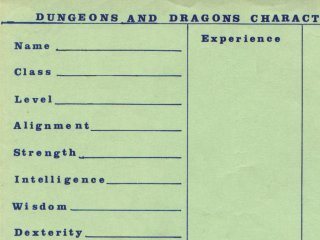I recently looked around on the internet for interesting tabletop roleplaying systems that I could read and try out for free. I’ve yet to play any of the ones that caught my eye for the first time, but I thought that I should share the highlights of my search.
In the descriptions, you might see the terms “simulationist” and “narrativist.” I’m using those words to describe how the game approaches the details of its rules. A simulationist game, in my way of seeing it, is one which offers a realistic and internally consistent world model which provides specific rules for a wide range of things. A narrativist game, on the other hand, is vague on details; generally, the players and game master can go along with the story, with the rules providing much broader strokes.
Here are the games that jumped out at me, in no particular order:
